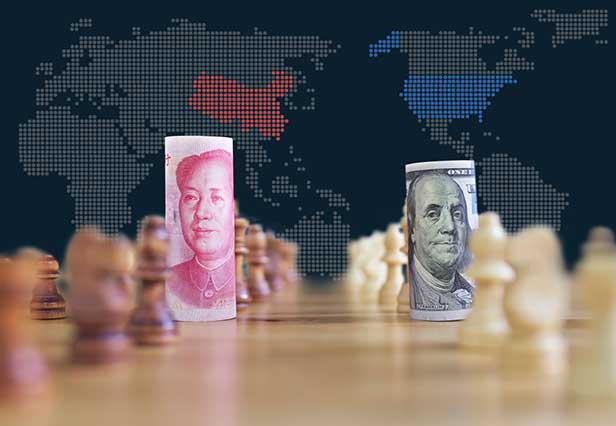News September 20, 2019
Tariff Exemptions Going Into Effect For More Than 400 Chinese Products
The temporary lifting of levies comes in advance of U.S/China trade deal talks in October.
President Donald Trump is temporarily lifting import tariffs on more than 400 Chinese products, according to just-published notices on the Federal Register.
The move, first reported by Politico, comes ahead of planned October trade deal talks between the United States and China, the world’s two largest national economies. It also occurs as 40% of midsized American businesses report that Trump’s tariffs on Chinese imports have posed challenges for them, with 26% saying retaliatory tariffs from China have hurt their companies, according to a quarterly survey from the U.S. Chamber of Commerce.

“The latest exemptions are a tacit acknowledgement by the U.S. of the damage being done to domestic interests by the imposition of tariffs,” Stephen Olson, research fellow at the Hinrich Foundation, told CNBC.
“The timing however is interesting,” he said. “It suggests that both sides have determined that further escalations are not desirable right now, so they are trying to create positive atmospherics before the October round of negotiations, in the hopes that those talks will at least forestall any further deterioration.”
An exact dollar value of the exempted items wasn’t known as of this writing. A review of the exemption lists suggests that the products do not have immediate, direct relevance for the promotional products industry; various types of apparel, hats, bags and drinkware, for example, remain under tariff.
Still, there are some items for promo products pros to potentially take note of, including plastic drinking straws, dog leashes and dog harnesses, outdoor wick-burning torches (“Tiki Torches”), and certain single-speed bicycles.
Exemptions also include a type of woven microfiber fabric of 100% polyester, and a type of woven fabric sheeting consisting of 65% polyester and 35% cotton. Christmas lights, electric-powered skateboards, certain solar panels, and motorcycles with electric propulsion that doesn’t exceed power of 1,000 W join a list of products that also includes various steel and agricultural-related items, as well as heat exchangers, compressors, chest-type coolers, three-wheeled carriages used by people with disabilities and more.
Tariffs from the U.S.-China trade war have contributed to an average 3% price increase for about 80 products sold at Walmart.
— NPR (@NPR) September 17, 2019
Some prices have jumped significantly:
📈 Cabbage head: +63%
📈 Fresh garlic: +53%
📈 White bread: +15%https://t.co/fuhG6czoOD
“This doesn’t seem to be an immediate shift in U.S. trade policy, as the U.S. had previously offered some type of tariff exemptions to qualified U.S. goods,“ Nick Marro, global trade lead at The Economist Intelligence Unit, told CNBC.
“It’s more in consideration of the trade war impact on the domestic U.S. economy than a concession to China, but this could still help build some goodwill before the trade talks in October,” Marro stated, adding that protests in Hong Kong and tensions around Chinese telecommunications giant Huawei could threaten any immediate agreement.
Exempted products are from three different batches of tariffs Trump imposed within approximately the last year. One set is based on the Sept. 24, 2018, tariffs on $200 billion worth of goods. The exemption will expire on Aug. 7, 2020. Another is pulled from the Aug. 23, 2018 levies on $16 billion worth of goods. The exemption ends one year from the publication of the notice, at this time next year. The other exemptions relate to duties on $34 billion worth of goods that were put into place on July 6, 2018. This exemption also concludes at this time in 2020.
No items from the list of $112 billion worth of Chinese imports that are subject to a 15% tariff have been earmarked for exemption. Those duties went into effect on Sept. 1, 2019.
The U.S./China trade war has cast clouds over the worldwide economy, with recession fears growing globally. This week, a coalition of U.S. industry groups, fearing economic harm, urged Congress to rein in Trump’s ability to impose tariffs.
The trade war, which has escalated over the last couple years, has hit home for the promo products industry. Issues include increased product prices, destabilized annual pricing, challenges in producing catalogs, and an ever more uncertain selling environment. It’s also made longer-term planning more difficult for some suppliers and caused suppliers (and certain distributors that source direct from abroad) to increasingly look for countries beyond China to produce products. As the search for new sourcing destinations accelerates, some industry leaders worry that more product safety and social responsibility issues will arise.
